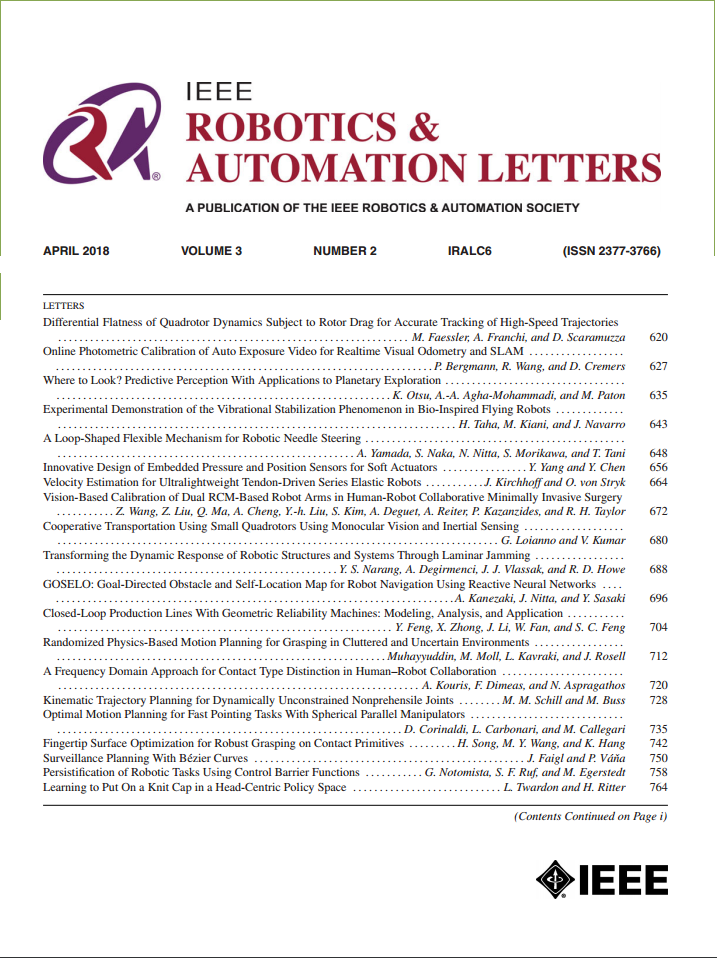基于鲁棒无监督域自适应的三维点云分割
IF 5.3
2区 计算机科学
Q2 ROBOTICS
引用次数: 0
摘要
无监督域自适应(UDA)框架对干净数据上的三维点云语义分割模型显示出良好的泛化能力。然而,当源域本身受到损害时,现有的工作忽略了对抗鲁棒性。为了全面探索UDA框架的鲁棒性,我们首先设计了一种隐形的对抗性点云生成攻击,该攻击可以在对点云表面只有轻微扰动的情况下显著污染数据集。在此基础上,我们提出了一个新的数据集AdvSynLiDAR,该数据集由合成的污染LiDAR点云组成。针对生成的损坏数据,我们进一步开发了对抗性适应框架作为对策。具体而言,通过将关键点敏感损失扩展到鲁棒长尾损失并利用解码器分支,我们的方法使模型在预训练阶段专注于长尾类,并在适应阶段利用高置信度解码的点云信息来恢复点云结构。我们在AdvSynLiDAR数据集上对我们的方法进行了评估,结果表明我们的方法可以减轻在3D点云分割应用中UDA在源对抗性扰动下的性能下降。本文章由计算机程序翻译,如有差异,请以英文原文为准。
Robust Unsupervised Domain Adaptation for 3D Point Cloud Segmentation Under Source Adversarial Attacks
Unsupervised domain adaptation (UDA) frameworks have shown good generalization capabilities for 3D point cloud semantic segmentation models on clean data. However, existing works overlook adversarial robustness when the source domain itself is compromised. To comprehensively explore the robustness of the UDA frameworks, we first design a stealthy adversarial point cloud generation attack that can significantly contaminate datasets with only minor perturbations to the point cloud surface. Based on that, we propose a novel dataset, AdvSynLiDAR, comprising synthesized contaminated LiDAR point clouds. With the generated corrupted data, we further develop the Adversarial Adaptation Framework as the countermeasure. Specifically, by extending the key point sensitive loss towards the Robust Long-Tailed loss and utilizing a decoder branch, our approach enables the model to focus on long-tailed classes during the pre-training phase and leverages high-confidence decoded point cloud information to restore point cloud structures during the adaptation phase. We evaluated our method on the AdvSynLiDAR dataset, where the results demonstrate that our method can mitigate performance degradation under source adversarial perturbations for UDA in the 3D point cloud segmentation application.
求助全文
通过发布文献求助,成功后即可免费获取论文全文。
去求助
来源期刊

IEEE Robotics and Automation Letters
Computer Science-Computer Science Applications
CiteScore
9.60
自引率
15.40%
发文量
1428
期刊介绍:
The scope of this journal is to publish peer-reviewed articles that provide a timely and concise account of innovative research ideas and application results, reporting significant theoretical findings and application case studies in areas of robotics and automation.
 求助内容:
求助内容: 应助结果提醒方式:
应助结果提醒方式:


